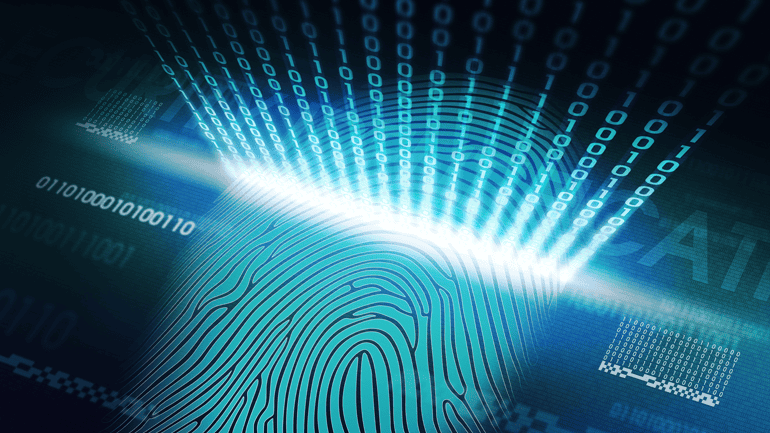
Combating Identity Fraud Through Biometrics
Brought to you by MEDICI


The Know Your Customer (KYC) process, which is the identification and verification of a bank’s clients in order to understand and better manage risks, is a central requirement of the federal anti-money laundering regulations. Today, technologies such as mobile and biometrics have a strong impact on the redesign and digitization of the registration process, significantly improving operational efficiency and customer satisfaction.
A range of financial institutions have been exploring opportunities through biometrics in one capacity or another, but in most cases employ biometrics for identification and authentication purposes for existing accounts, aimed at making passwords obsolete once and all. With increasing multipurpose adoption, by 2021 the market will reach a value of $30 billion with its primary revenues shifting from the government sector to banking and consumer electronics.
Experts from M2SYS, a biometric identity management technology provider, suggest that as more banks and financial institutions begin to augment their customer identification security policies, the evaluation of using biometrics for KYC management will increase rapidly.
The use of biometric identification management technology for accurate customer identity verification has proven to deliver efficiency and convenience for organizations that have adopted it. The technology also helps comply with government regulations to prevent identity theft and money laundering. Due to inefficient KYC management, nearly 9 million Americans are victimized each year, costing consumers $5 billion, and banks and corporations $56 billion, annually.
Industry expert David Benini, vice president of marketing at Aware, a biometric software developer, wrote recently that “More than just —something we are,’ biometrics allow us to permanently bind ourselves physically to digital information; a powerful capability that enables us to not only biometrically authenticate, but also to biometrically deduplicate.” The idea behind biometric KYC management is quite simple–instead of the customer being required to present official identifying documents in person upon application, a biometric-based search can eliminate the need for a lengthy check with additional tapping into public and private records to ensure the absence of copy records.
Biometrics allow banks to be sure that a particular person does not exist in the database with different data. Benini emphasizes that the power of the idea behind biometric identity proofing rests in the ability to combat identity theft at its source by ensuring the integrity of identity data at the point of enrollment.
Given its unique properties, biometric-based KYC management in the financial services industry enables institutions to speed up the customer verification process without compromising the accuracy. Implementation of biometric KYC management solutions can ensure higher accuracy and efficiency, eliminating the risk of financial fraud and its legal and financial consequences for consumers and organizations.
The critical benefits of transitioning to biometric KYC management include:
Enhanced Operational Efficiency
KYC management has traditionally been a resource-consuming process requiring time and manpower (hence, substantial financial expenditure) to verify a person’s identity, since KYC compliance involves a tedious process of verifying the customer’s original documents of proof of identity and proof of address in person, among other things. Biometric KYC cuts corners without compromising accuracy and security, as biometrics carry unique and arguably impossible-to-forge information and are permanently tied to one’s records.
Improved Cost-efficiency
There are a couple of ways biometric KYC management saves money for financial institutions: reduced time to verify information about the person, and as a result of increased accuracy, reduced expenses on fixing issues that appear as a result of inefficient KYC procedures. It takes an average of $1,173 and 175 hours to clean up one’s credit report and associated complications, and when you multiply that times the vast customer base of a medium-sized bank (not to mention much larger banks), it’s obvious that biometric KYC can become a real cost saver, facilitating a better allocation of resources.
Greater Security
Today, biometric-focused technology and software has reached a level of sophistication where providers can ensure higher levels of protection against identity fraud and all compliance consequences because of it. Behaviometrics are the last word in secure identity verification, bringing together machine learning and continuous tracking of user behavior. A separate class of companies is delivering biometric-focused anti-fraud solutions, including NuData Security, BioCatch, BehavioSec and AimBrain.
Gains in Convenience and Customer Satisfaction
The speed of identity verification affects overall customer satisfaction and is more convenient since it ensures an easier and more efficient user experience. And an enhanced customer experience translates into a better reputation and higher customer retention.
Organizations that aim to keep up with the latest technological advancements for efficient KYC management cannot miss out on the application of biometric-based solutions. Today, there is no lack in technology companies powering biometric KYC management through sophisticated software and biometrics screening technology. Recognized leaders include Daon, EyeVerify Qualcomm, with such companies as BioConnect, M2SYS, HooYu, Aware, Hoyos Labs, ID Global, Socure, physiSECURE and many more comprising an expanding list.

